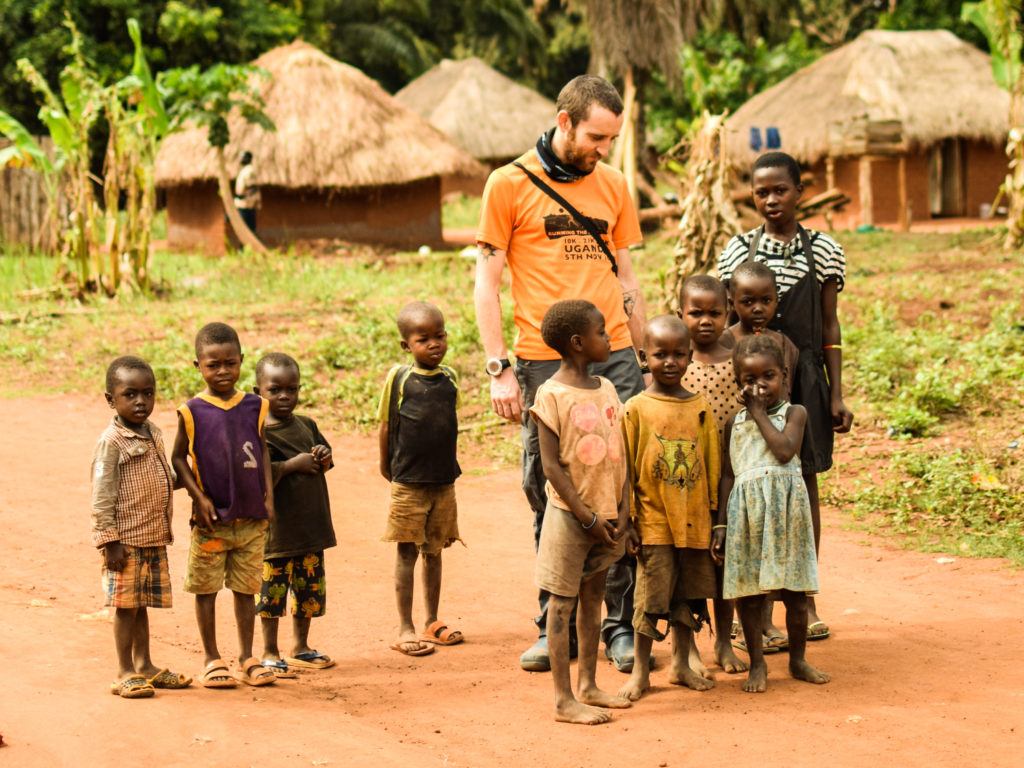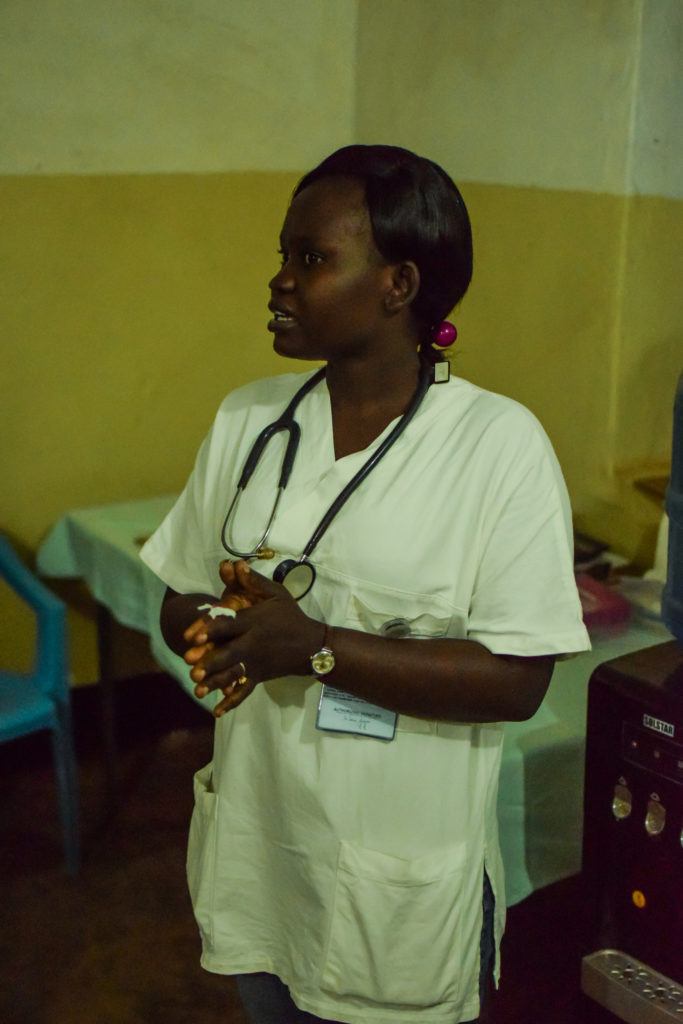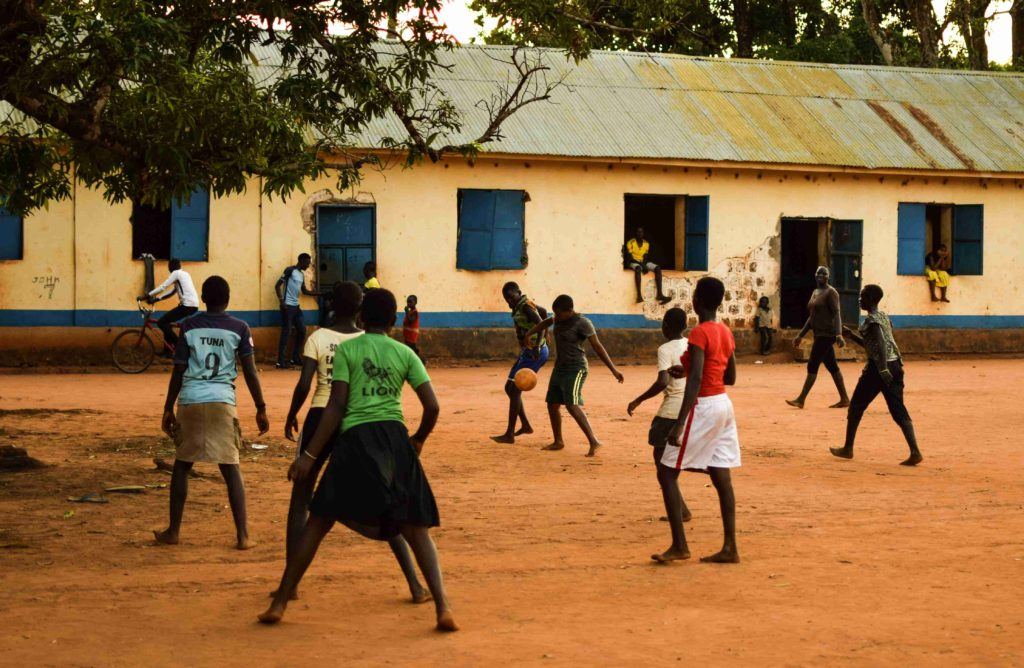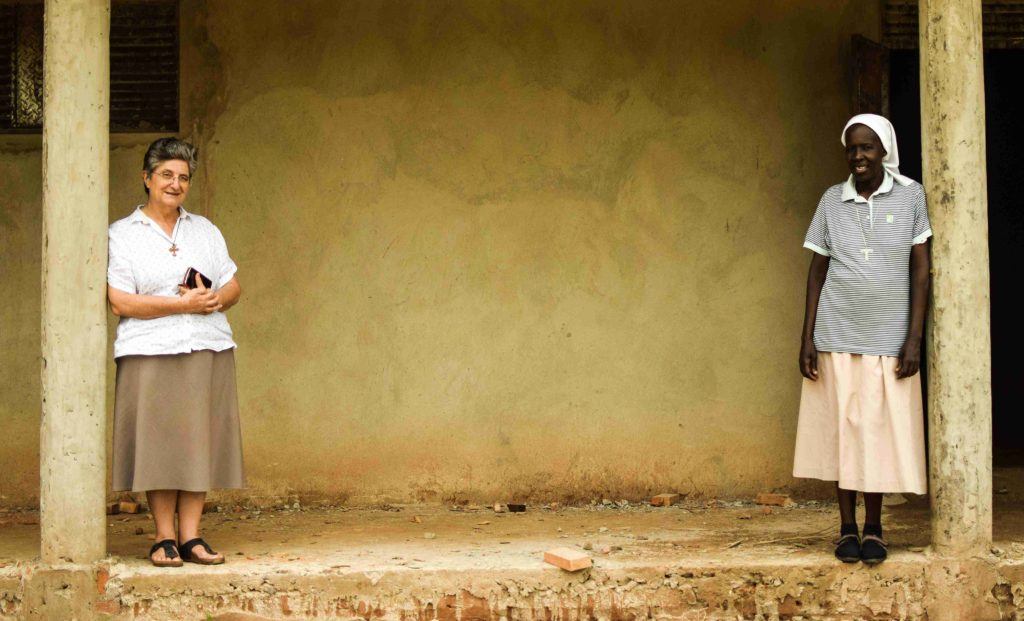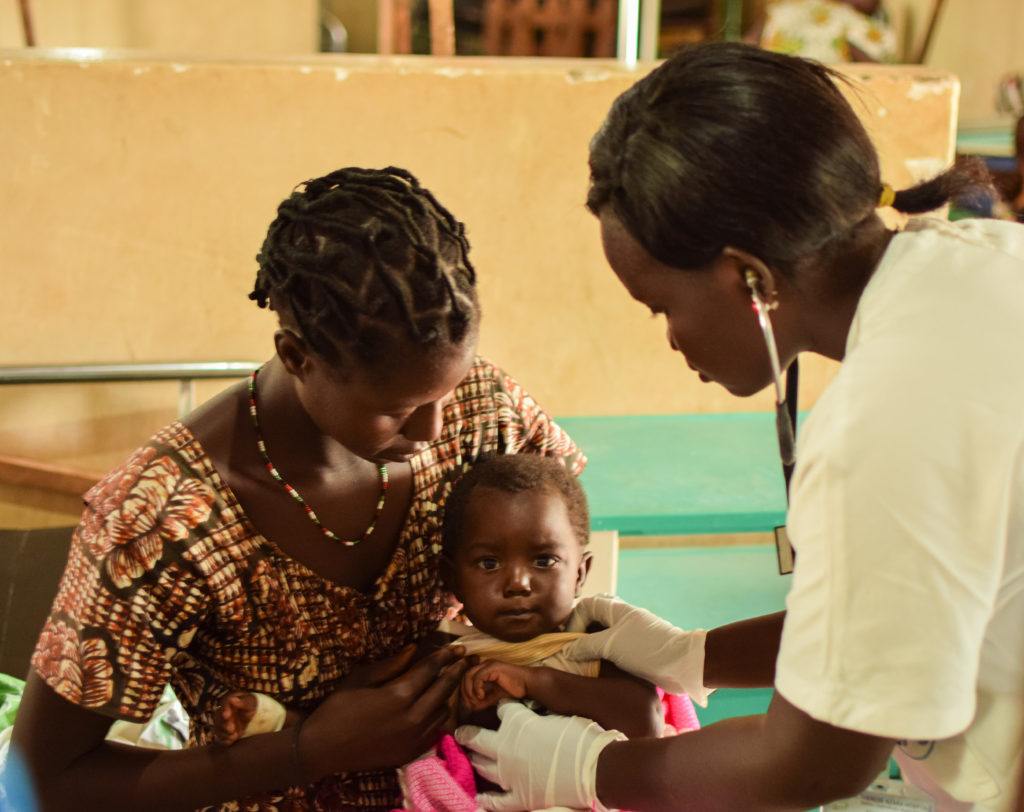In the Absence of Choice: The Lives of Women in South Sudan
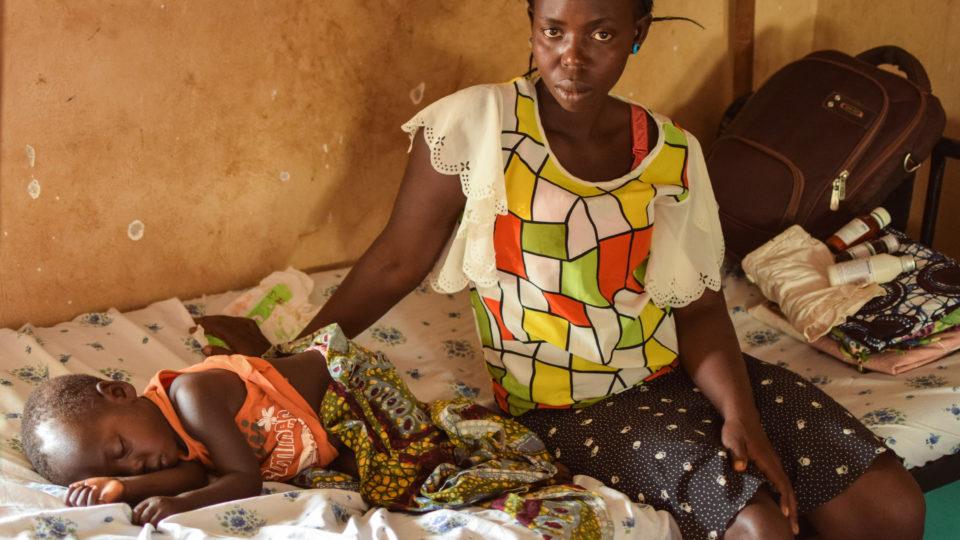
A Woman’s Life
We’re walking along a dirt track road during our lunch break. Dr Laja is talking about some of the challenges she faces working in Nzara. Every 10 seconds another young child runs up to me, the tall white guy, shouting,
“Khawaja,” meaning white guy.
They want to hold my hand, get a high five, stand near me, like I’m a celebrity or local dignitary. It would be simply charming, but for a sense I have that I am standing next to someone far more committed, far more important, and far more brave than I am.
Dr. Laja is in her mid to late 20s. I don’t dare ask for fear of being a little disrespectful, though she is a lovely, laid back human being with an infectious laugh and beautiful sense of humor. She is married and has two young children in the capital city Juba, an hour’s flight away. She has a dignity amidst her reserve that I find inspiring.
I asked her the other day how much the flight would cost. She told me $100 and to my shame, I said it wasn’t expensive. Imagine a flight from London to Birmingham or New York to Washington costing $800, when you adjust for salary disparity. It’s painfully easy to forget such things as a westerner. $800 dollars to see your children for a weekend.
Finally, two children ignore me and come and hold Dr Laja’s hand. They’ve spotted the real star here.
It’s so easy when you work in overseas to fall back on clichés and stereotypes and lazy assumptions. A third of South Sudan’s medical students in Juba are female. But Dr. Laja’s educational background and greater influence lies in Khartoum, Sudan. She was educated there before university, in a culture that is famous for its medical training regime. Though it has a poor reputation for gender equality, they produce a large number of female doctors, many of whom end up in the UK.
Dr. Laja in some ways personifies the cultural contradictions that arise out of the relationship between the mainly Islamic republic of Sudan and the largely Christian republic of South Sudan, which broke away from Sudan in 2011. She is a committed Christian whose first language is Arabic. She owes her educational background to a culture that is considered to be highly oppressive of women.
But taking a step back again, it dawns on me how extraordinarily different our backgrounds are that have led to our sharing ward rounds here in Nzara, South Sudan. And the word that comes closest to capturing that difference is the word “choice.”
Choice
I choose to come to South Sudan, a choice that involves a degree of suffering, in terms of material circumstance as a volunteer here, leaving behind a decent salary in the UK; in terms of physical conditions with the absence of the comforts I have grown up in; in terms of distance from family and friends.
I have the privilege of making this choice, a choice that has led Dr. Laja and me to leading such similar lives. But she has significantly less choice. This is her career, a move she does not make solely to give back to the world. She is here to better her children’s lives, to earn money that will enable her to give them the same educational opportunities that she had.
As we walk back to the hospital, I made a comment about feeling hungry. As a former endurance athlete, specialising in running marathons, I was conditioned to calorie restrict myself. I would on occasions throw away food in front of me because I did not trust myself not to eat it.
Dr. Laja made a simple response.
“We are used to being hungry here.”
A simple reminder. The choice I have exercised to go hungry in order to improve my personal best in a running race; versus the hardships this country has faced that still cause children to die of malnutrition.
I choose my path; Dr Laja, even as an educated South Sudanese woman, experiences the choice of others over her life.
On the ward rounds in the hospital, I frequently hear comments made that would cause great offence in the UK. People laugh in the presence of the suffering of others, but it’s not cruel laughter to my ear, just an instinctive response perhaps to suffering. But I wonder how it feels to be a woman in this culture.
How would I feel as a woman if a male dominated ward round laughs openly because a prostitute has been headbutted?
How would I feel as a woman if a male dominated ward round makes open and casual reference to intimate relations?
Yet, it’s not only men who seem to laugh in the presence of female hardship. A few days ago, I was asked how I felt about a woman having to accept the brother of her dead husband, without any obligation on his part to provide financial support, even when she has a child by him. I frowned and pulled a face. Everyone laughed, even the women, present, even the woman in question.
I am not offended by any of this, but then as a male I have never lived the experience of women. I have never seen opportunities denied to me by virtue of my gender. I have not grown up in a culture that assumes inferiority in one gender.
Dr. Laja and I walk on, approaching the gate of the hospital. We pass a young mother and daughter, who has recently been diagnosed with diabetes. The father left the mother shortly after she was born because he wanted a son.
As we return to the ward, we see a mother with baby strapped to her back, heading home. The child was admitted with severe malnutrition from Congo, a five-hour drive away. She was in Congo attending a funeral, but we cannot come to understand how she survives here in Nzara. Her husband has another family and it appears she survives with her child purely on the side of this second family. Clearly, the child has not received much paternal attention.
Every ward round is the same. Mothers and children, fathers absent, fathers more interested in second families. Yet to reduce this to a simplistic narrative of women good, men bad will not fix a thing. What is it we do now to redress the balance?
Glimmers of Hope
Last weekend, I passed a game of football played by young woman and girls. There was an intensity, an energy, a joy, and a vibrancy that seemed both similar and different to the parallel game among the young men.
I walk to work every day past an enterprise set up by a woman, creating bricks for local construction. She’s taken in the children of her recently deceased brother and sister, two separate families.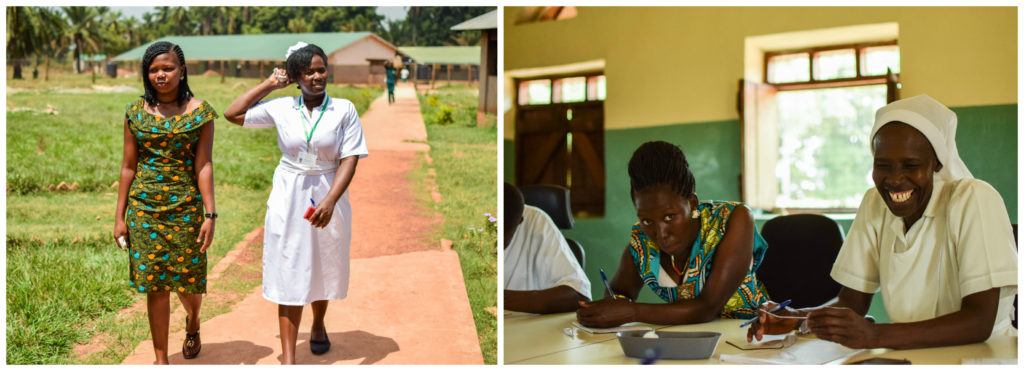
I see young women trainees on our wards matching and at times exceeding their male counterparts for commitment and hard work.
And I work along side Dr. Laja, under the guidance of two extraordinary women, Sister Laura and Sister Jane.
There’s always hope.
A Simple Question
I ask Dr. Laja the simplest question.
“How do we empower women?”
“We need to let them know their rights, so they know their options…there are not so many options here in South Sudan.”
I look at her and smile. She’s not done too badly, training as a doctor during a civil war. And somehow I feel that this woman may have a role to play, small or big, local or national, in the struggle for empowerment.
Click to Watch Matthew’s Video Diaries
Matthew is a UK-trained doctor who was our first Aurora Fellow and is serving as a volunteer in South Sudan.
